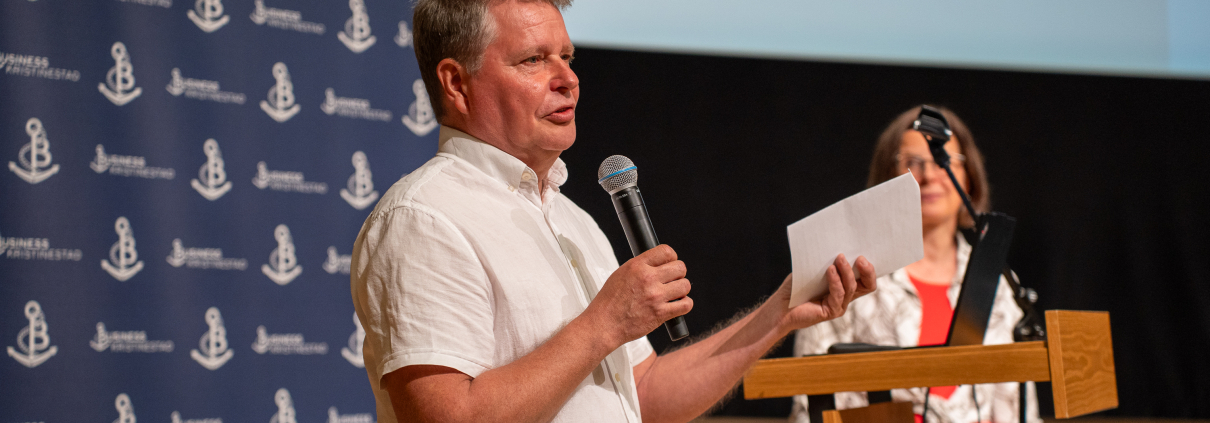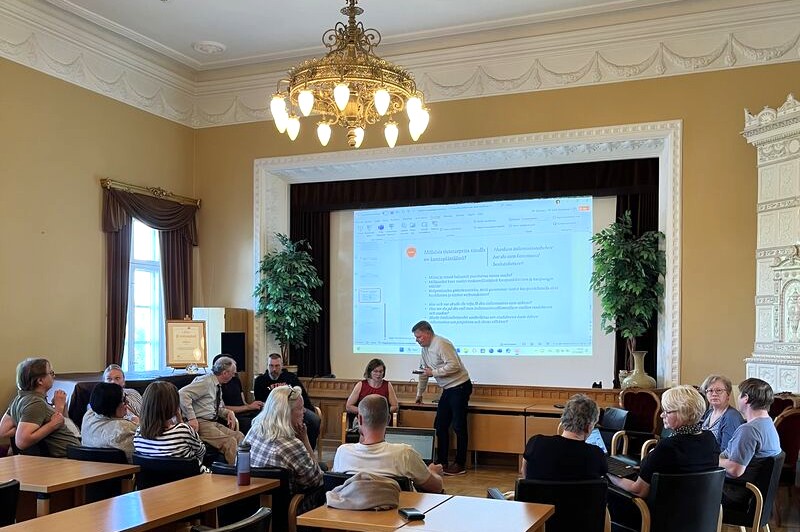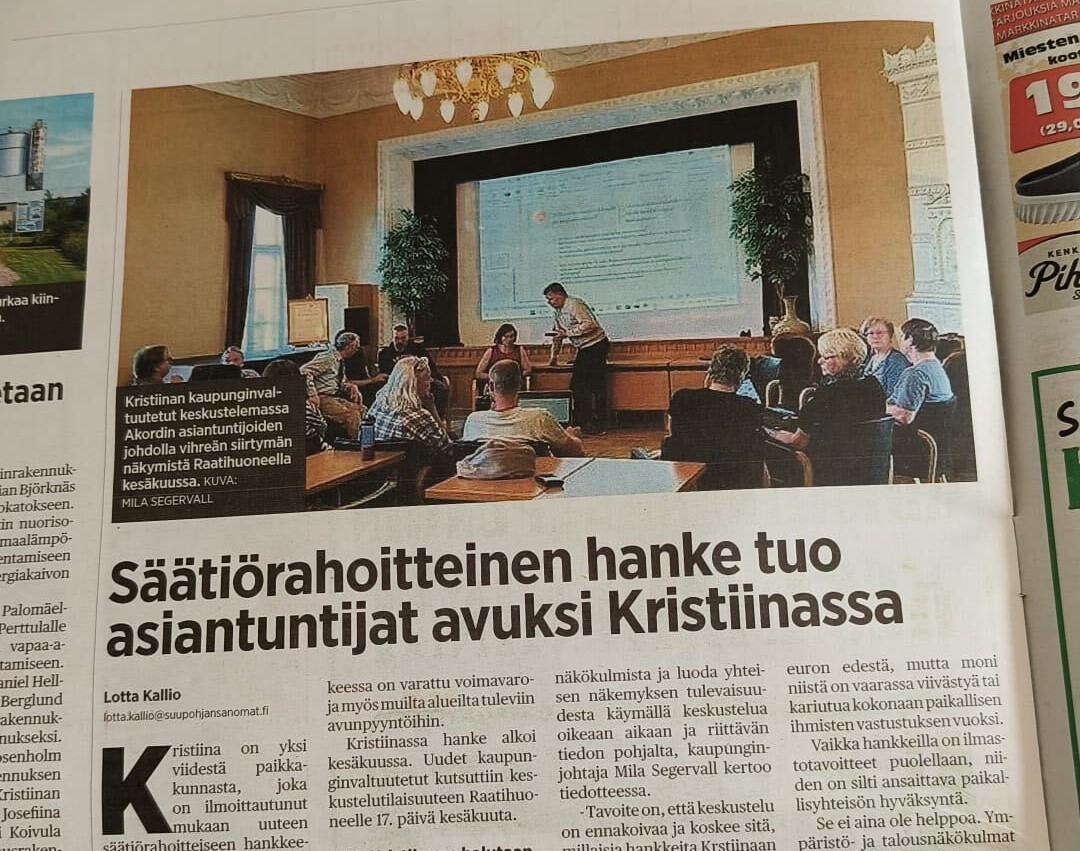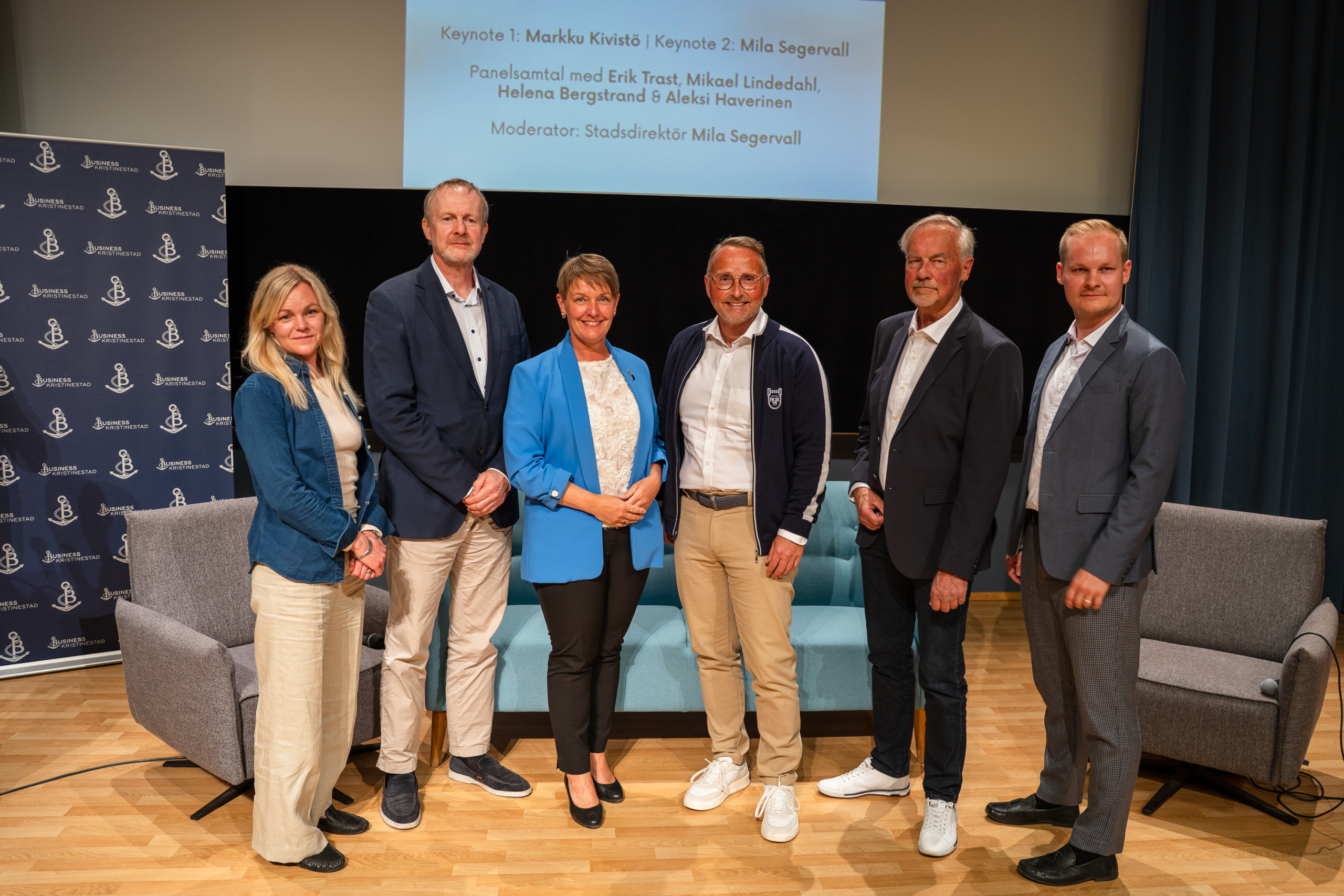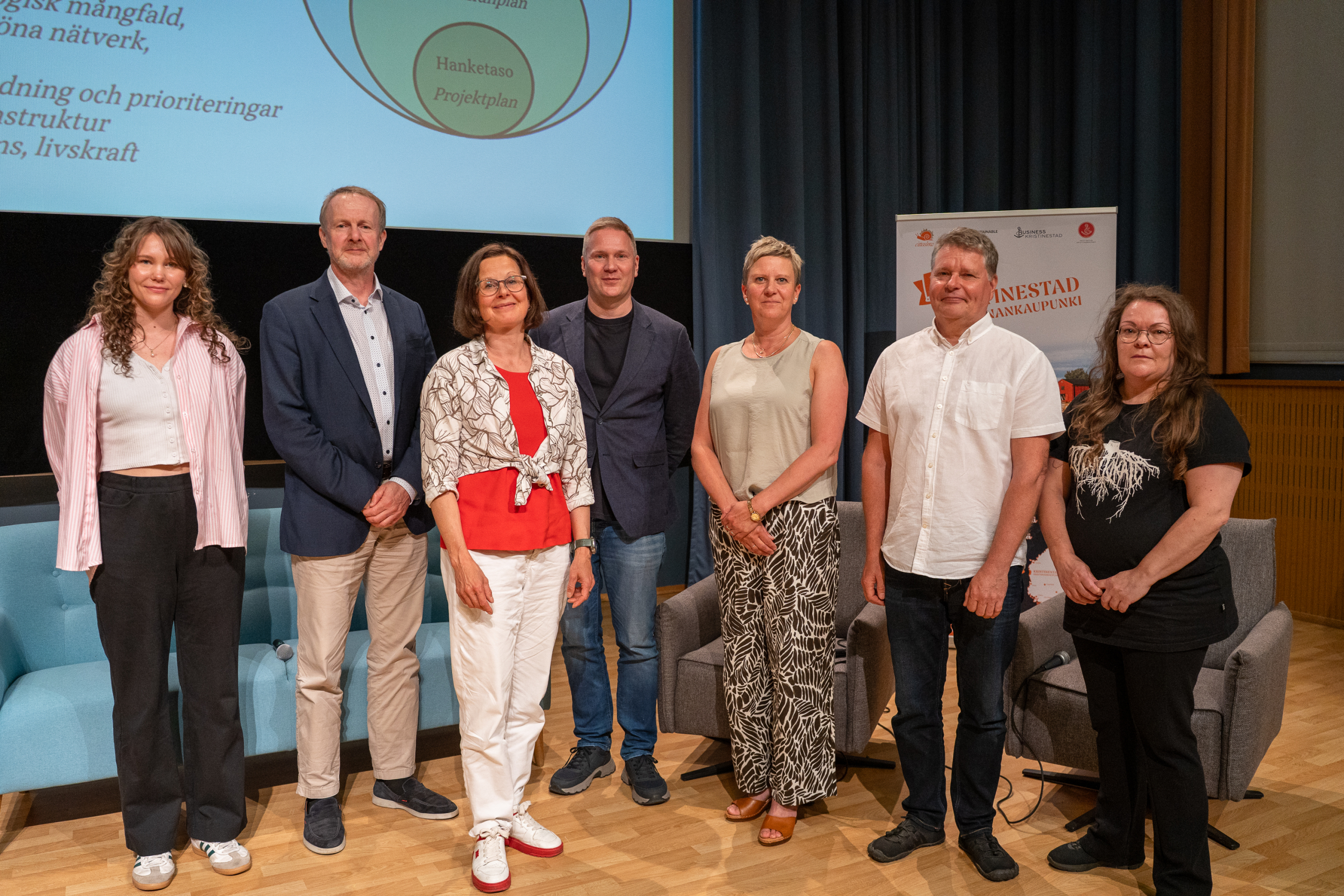The green transition and ways to build social acceptance for it were discussed at the Kristiinankaupunki Community Days
Akordi participated in Kristiinankaupunki Community Days on July 9–11 as a speaker, moderator, and active listener. Kristiinankaupunki is one of the project locations where we are working in our new foundation-funded project to help anticipate and resolve conflicts related to the green transition.
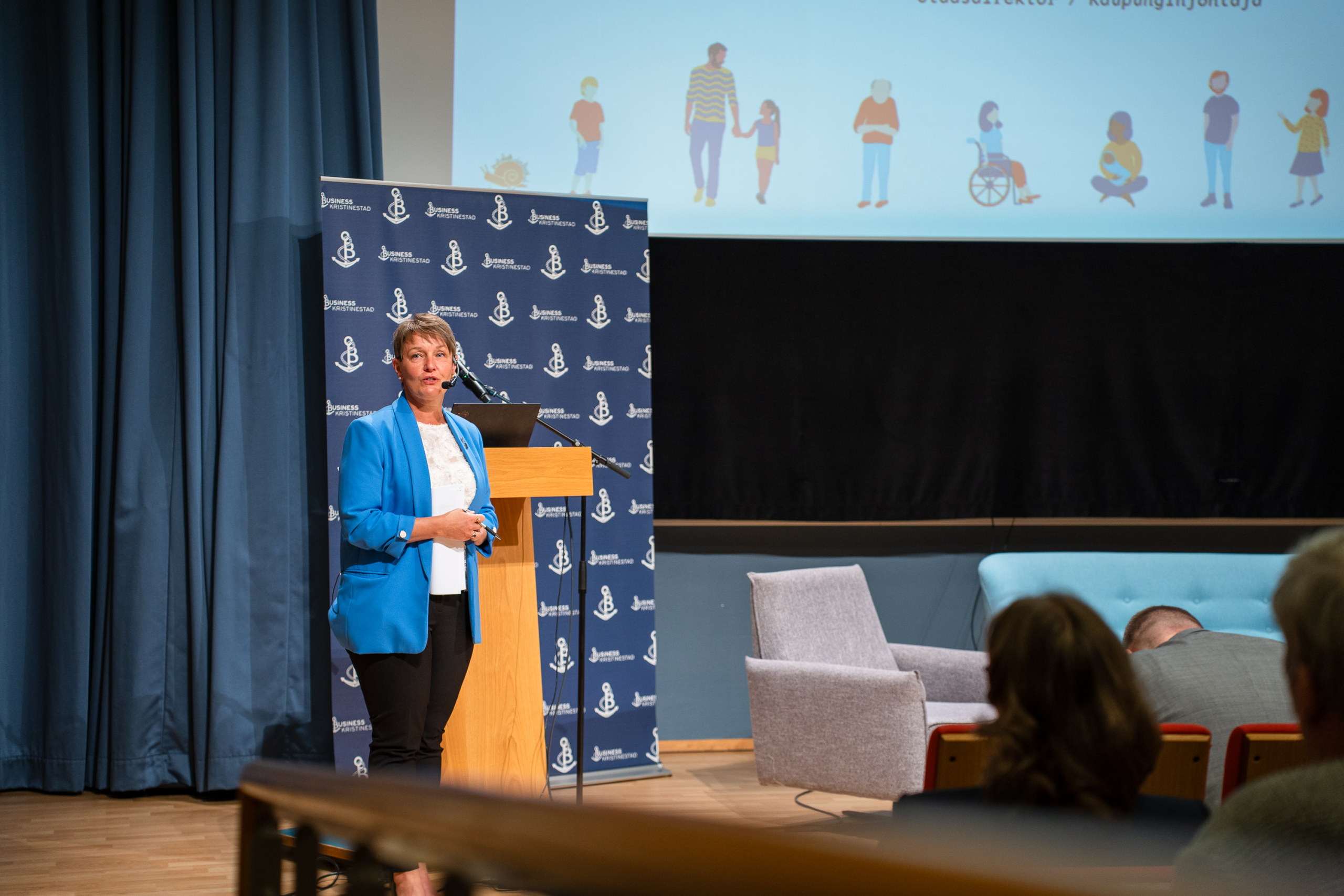
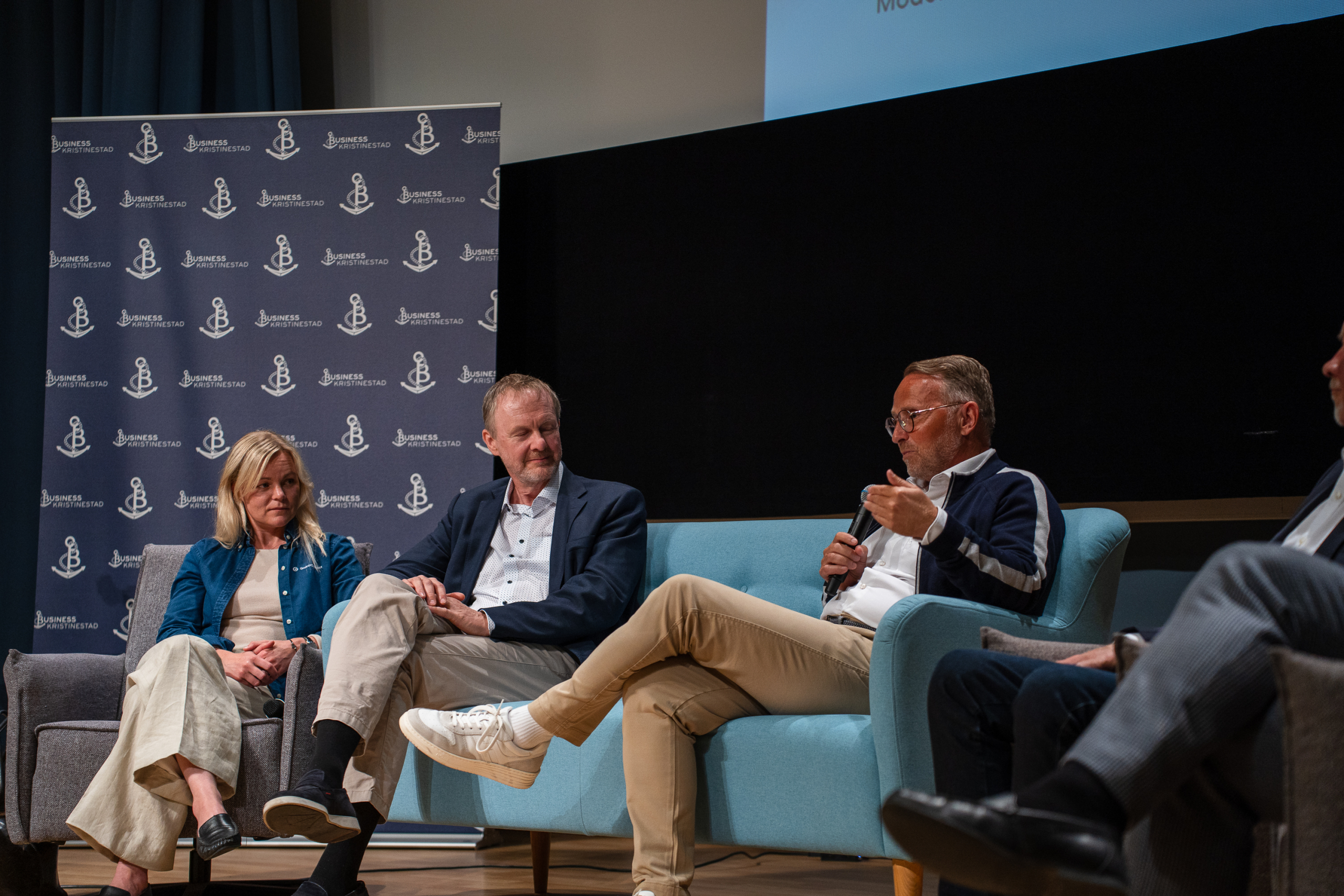
Keep cool and citta slow – Kristiinankaupunki style to the green transition
Kristiinankaupunki is striving to build green transition in a determined but considered manner, with a “Keep cool and citta slow” attitude.
“Cittaslow means cherishing the good life, building roads to the future from the history, and not rushing into things before they have been thought through,” explains Mayor Mila Segervall.
Segervall, Markku Kivistö from Business Finland, and representatives from four companies discussed green transition investments from different perspectives last Thursday. Topics included the expectations of city residents, the local impact on employment, the role of municipal decision-makers, and the responsibilities of early-stage communication. Cooperation between different actors, roles and methods of communication, and the city’s attractiveness factors were also discussed.
“Let’s move forward together. Slowly, when we have to, but decisively, because we have to,” Kivistö summed up at the end of the discussion.
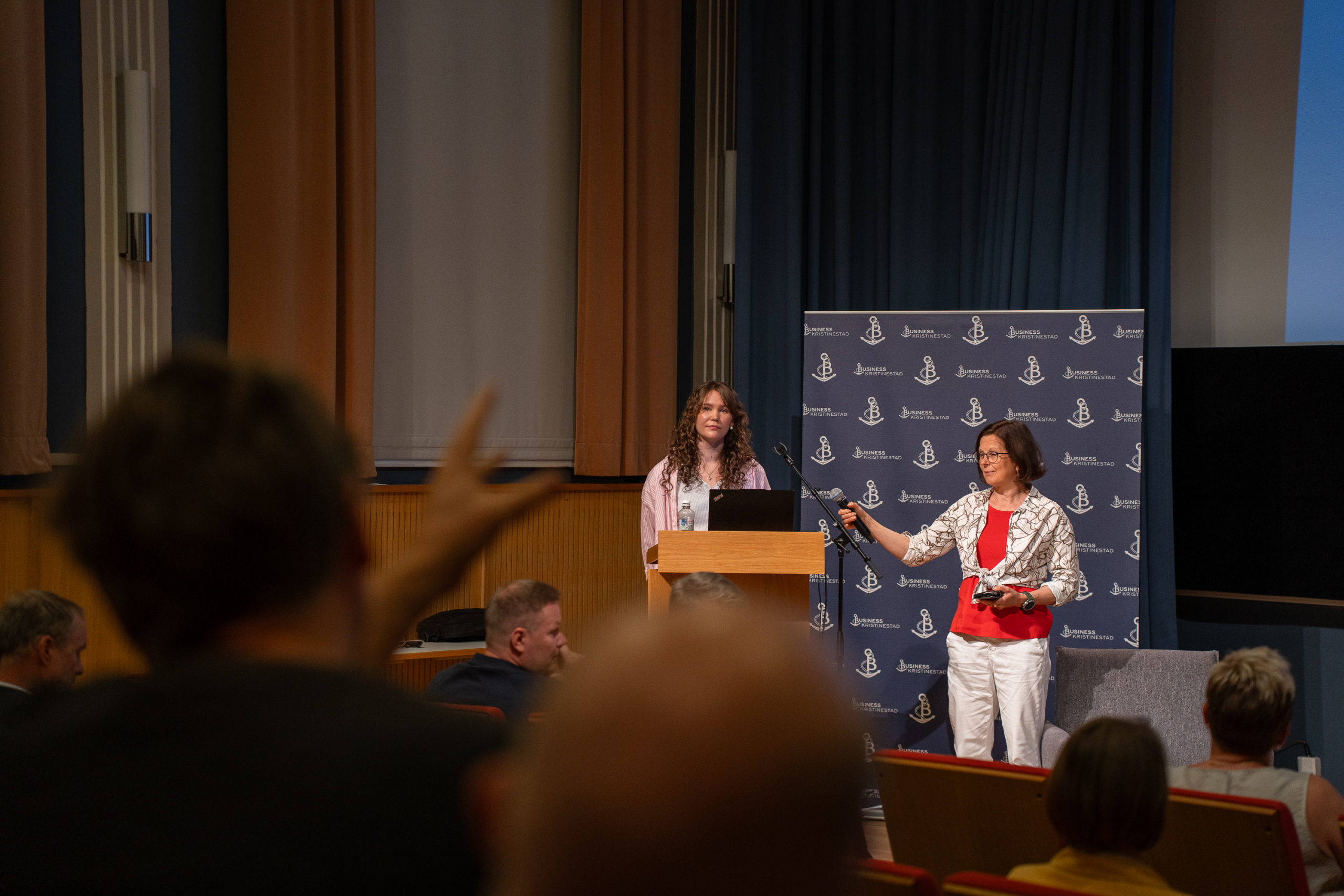
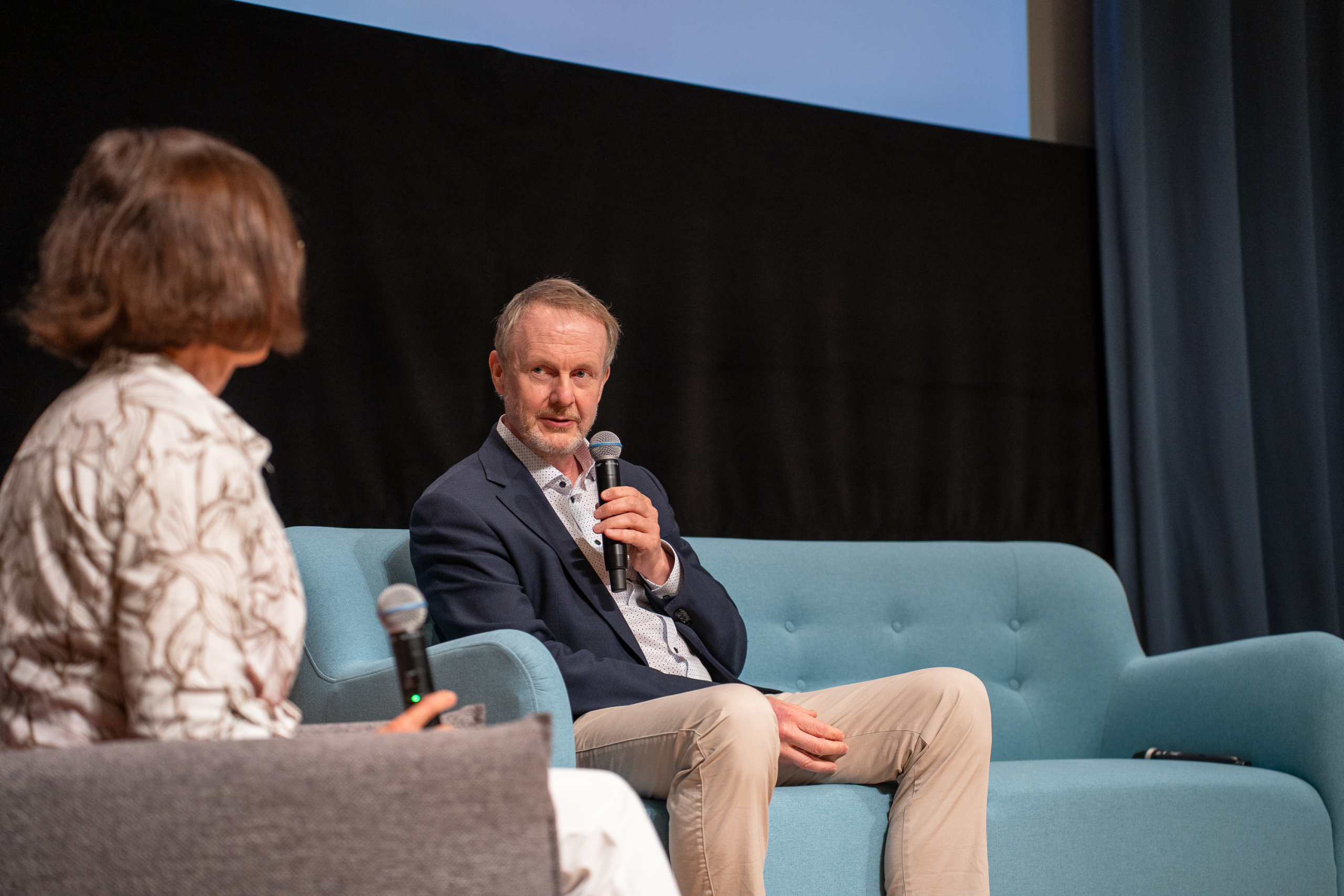
More tools for municipalities to build social acceptance
On Friday, the role of ecological compensation as a tool for building acceptance was explored in greater depth. Kristiinankaupunki is one of the first municipalities in Finland to implement voluntary ecological compensation in accordance with the rules laid down in the Nature Conservation Act.
Akordi was joined in these discussions by Ramboll’s environmental consultant Inka Ojanen, City Council Chair Eva Lillmangs, Executive Director of the Ostrobothnia District of the Finnish Nature Conservation Association Marjo Lehtisalo, Regional Mayor Mats Brandt of the Regional Council of Ostrobothnia, and Markku Kivistö from Business Finland.
“For example, when trees are cut to make way for construction, this damage can be compensated for by restoring or protecting areas elsewhere. The aim is to ensure that biodiversity as a whole is not reduced as a result of human activity,” Ojanen explained.
Akordi’s Senior Mediator Juha-Pekka Turunen described what social acceptance of projects means beyond ecological compensation and how it can be built. He set a goal of finding solutions in Kristiinankaupunki that would be good from all perspectives: nature, the economy, and the local community. In the best-case scenario, it is not just a matter of avoiding, minimizing, and compensating for harmful impacts, but of creating entirely new solutions that are better than before.
How can we get more benefits than disadvantages from green transition projects? This question was answered in a panel discussion moderated by Akordi’s Business Development Director Minna Näsman. The discussion highlighted, among other things, the enormous amount of new information, the need for cumulative impact assessment at the regional level, and the need to strike a balance between combating climate change, protecting biodiversity, and economic values. Efforts should be made to learn quickly and act strategically at every level: locally, regionally, nationally, and internationally.
“Practical measures are taken in municipalities, but they always have systemic effects on regions and the national economy. That is why we need to be able to shift our perspective between these different levels,” explained Regional Mayor Brandt.
Kristiinankaupunki is one of five project locations in a new foundation-funded project
The TAH Foundation and the RELEX Foundation have joined forces to fund Akordi’s work through a new project that offers help in finding fair and acceptable solutions at the local level.
The project, which began in June, brings in experts to help manage the green transition in five locations: Kristiinankaupunki, Oulu, the western reindeer herding area, Sodankylä, and the Kaustinen region. In addition, resources have been allocated for rising need from other areas as well. The aim is to roll out and scale up previously tested methods of conflict prevention and resolution that have been proven effective.
In Kristiinankaupunki, the work began with a discussion meeting for newly elected council members in June. With Akordi’s support, the city wants to strengthen its own ability to deal with the major changes ahead in a transparent, controlled, and fair manner.
In cooperation with Akordi, we want to increase understanding of different perspectives and create a shared vision of the future through dialogue at the right time and based on sufficient information. The aim is for the discussion to be proactive and to focus on what kind of projects are wanted in Kristiinankaupunki and on what terms,” says Mila Segervall, Mayor of Kristiinankaupunki.
Suurpohjan Sanomat wrote earlier last week about Akordi’s work in Kristiinankaupunki: New foundation-funded project brings experts to Kristiina (in Finnish).
Read more about the project: Significant funding to Akordi for anticipating and resolving green transition conflicts on the local level
Panelists
Photo 1: Kristiinankaupunki on the map – investments and faith in the future. From left: Helena Bergstrand / Global Connect, Markku Kivistö / Business Finland, Mila Segervall / Kristiinankaupunki, Erik Trast / Koppö Energi, Mikael Lindedahl / RL Trans, and Aleksi Haverinen / Plug Power.
Photo 2: Ecological compensation – What role will it play in Kristiinankaupunki in the future? From left: Inka Ojanen / Ramboll, Markku Kivistö / Business Finland, Minna Näsman / Akordi, Mats Brandt / Regional Council of Ostrobothnia, Eva Lillmangs / Kristiinankaupunki City Council, Juha-Pekka Turunen / Akordi, and Marjo Lehtisalo / Ostrobothnia District of the Finnish Nature Conservation Association.
Minna Näsman wrote about the themes of the discussions in more detail in her blog post from Thursday and from Friday (in Finnish).
Watch an excerpt from JP’s speech below (in Finnish):

